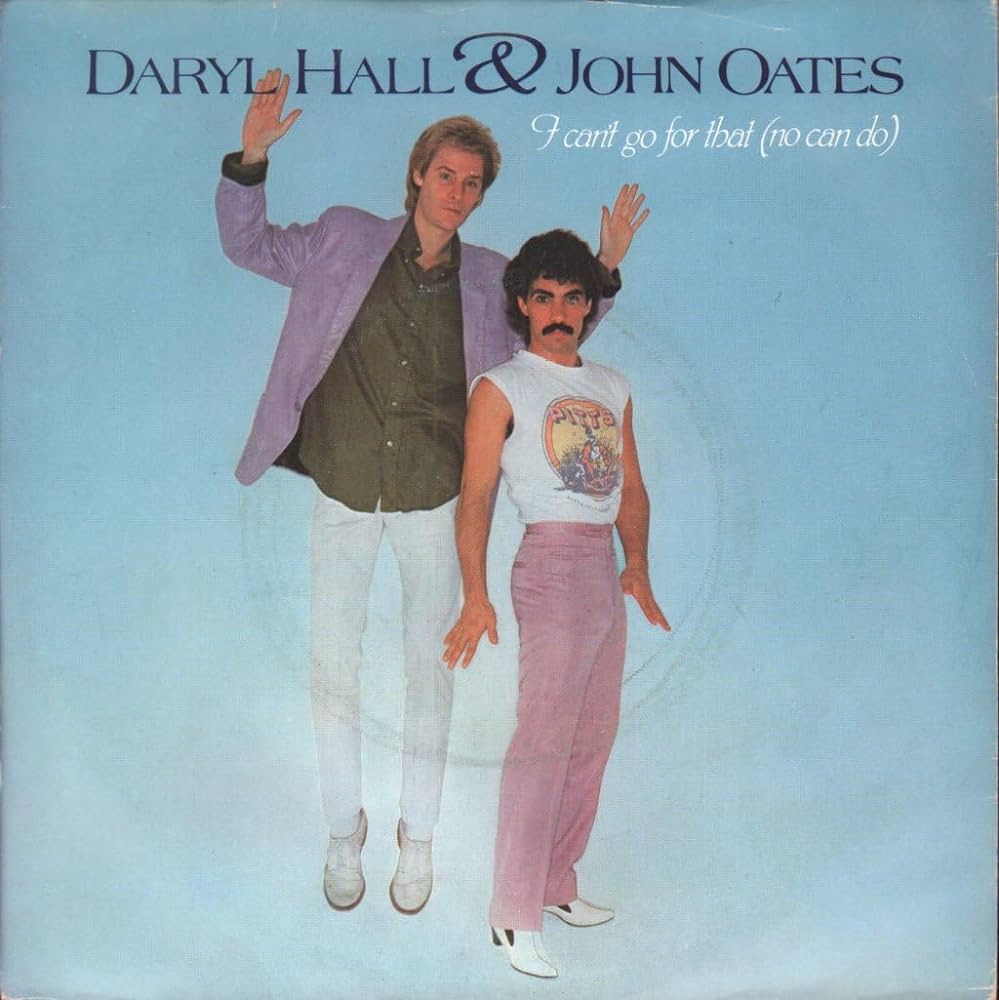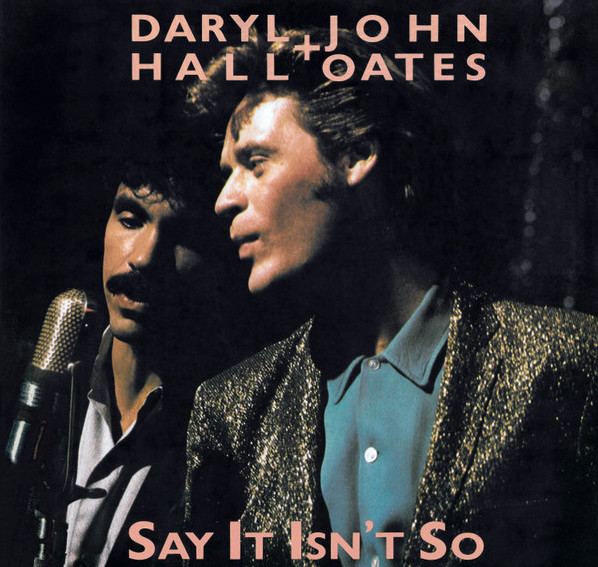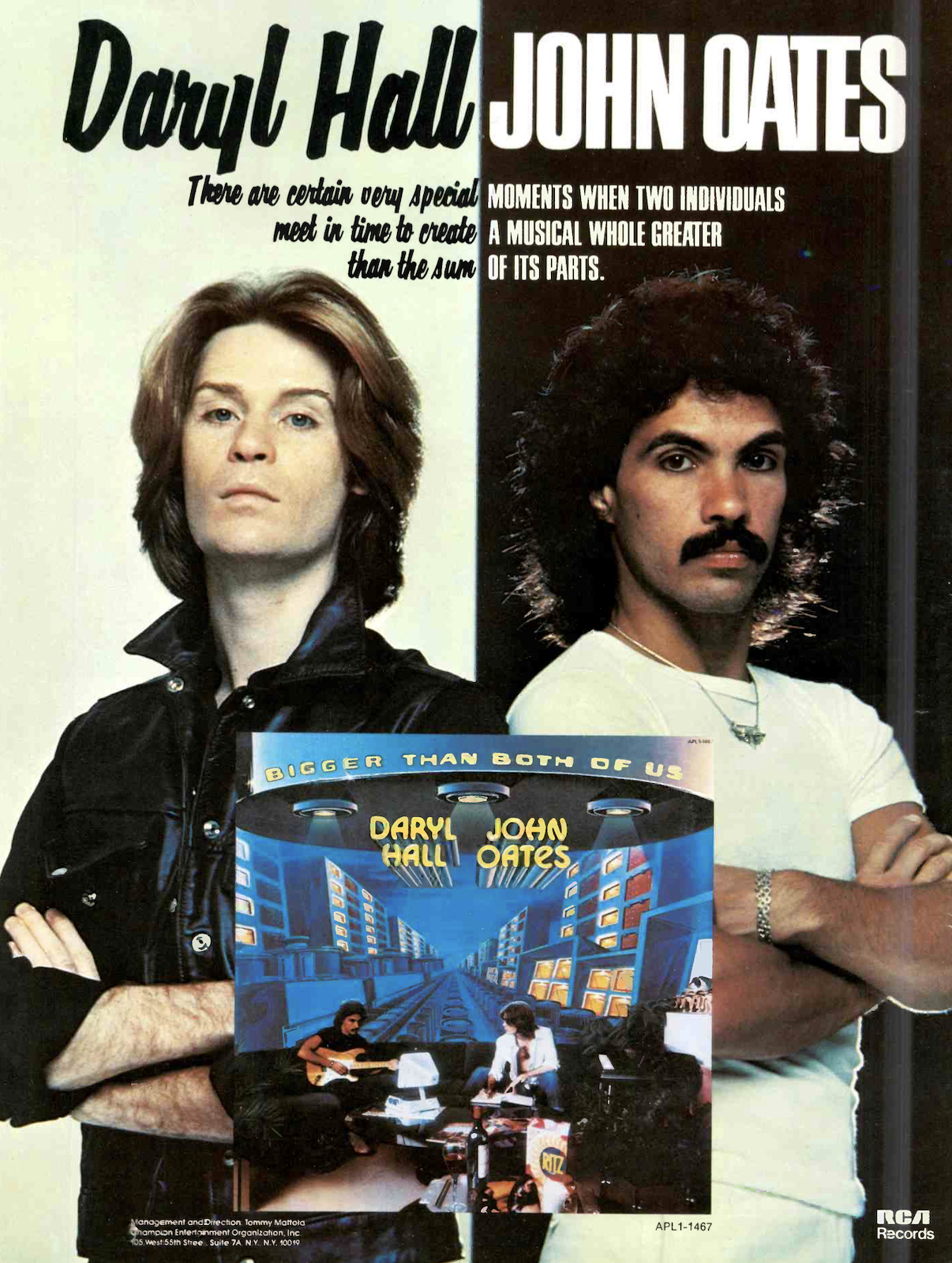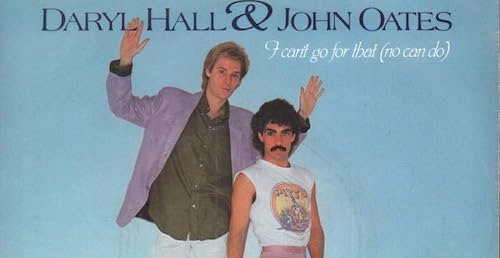 The titles of several of the hit singles from Hall and Oates have become eerily autobiographical. “One on One.” “I Can’t Go For That (No Can Do).” “Say It Isn’t So.” That’s because of the follow-up to the news that broke just before Thanksgiving 2023 of a rift between music’s biggest recording duo. Daryl Hall, 77, filed a lawsuit in a Nashville court to prevent John Oates, 75, from selling his share of their joint venture Whole Oats Enterprises to Primary Wave Music. Hall’s suit also included the request—since granted—for a temporary restraining order against his decades-long partner. And on Nov. 30, a Nashville judge agreed to extend that restraining order until a private arbitrator hears the case. Chancellor Russell Perkins thus ruled that Oates can’t proceed with his sale of his share of the duo’s JV… for now.
The titles of several of the hit singles from Hall and Oates have become eerily autobiographical. “One on One.” “I Can’t Go For That (No Can Do).” “Say It Isn’t So.” That’s because of the follow-up to the news that broke just before Thanksgiving 2023 of a rift between music’s biggest recording duo. Daryl Hall, 77, filed a lawsuit in a Nashville court to prevent John Oates, 75, from selling his share of their joint venture Whole Oats Enterprises to Primary Wave Music. Hall’s suit also included the request—since granted—for a temporary restraining order against his decades-long partner. And on Nov. 30, a Nashville judge agreed to extend that restraining order until a private arbitrator hears the case. Chancellor Russell Perkins thus ruled that Oates can’t proceed with his sale of his share of the duo’s JV… for now.
On Nov. 29, Hall filed new paperwork—obtained by Billboard—that described Oates’ plan as an “ambush” that “blindsided” him. And if previous public comments made by Hall are indicative of his true feelings of Oates, whom he described in a 2022 interview as his “business partner… not my creative partner,” it would appear that even if the suit is somehow settled amicably the pair are likely to be done as a recording and performing entity.
In the Nov. 29 filing, Hall referred to Oates’ actions as the “ultimate partnership betrayal,” calling it a “completely clandestine and bad faith move in blatant violation” of their agreement. Furthermore, Hall wrote that he discovered Oates’ attempt when he was about to begin a tour. “I believe that John Oates timed the unauthorized transaction to create the most harm to me,” he wrote.
“The potential of being forced into a partnership with Primary Wave without my consent is incredibly upsetting,” he wrote. “There is no amount of money that could compensate me for being forced to partner with an entity that I did not agree to partner with, and whose business model does not comport with my views regarding the WOE assets. The harm is unimaginable.”
In its comprehensive coverage, Billboard noted that the duo had been contemplating a “divorce.” In the Nov. 29 filing, Hall noted that Oates had recently become “adversarial and aggressive” and intended to “burden and harass me,” leading them to discuss an end of several joint ventures. Hall noted, however, that Oates had never discussed selling his share in their joint venture, Whole Oats Enterprises.
“John Oates was very combative and protective with respect to WOE, and consistently conveyed his desire to keep his ownership and that partnership intact and operative—there was never a hint that he would try to ambush me with a sale,” Hall wrote.
Oates’ own filing stated, “I have no idea who or what is motivating Daryl to take these steps and make such salacious statements, but I am deeply hurt. “I can only say that Daryl’s accusations that I breached our agreement, went ‘behind’ his back, ‘acted in bad faith,’ and the like, are not true.”
A Nashville chancery court judge granted Hall’s restraining order on Nov. 16 which served to prevent Oates and his co-defendants, including his wife Aimee Oates, from completing the sale of their business interests to Primary Wave until the lawsuit is heard. It remains on hold, based on the Nov. 30 court hearing.
 From the AP’s excellent earlier coverage: “The lawsuit says Oates’ team entered into a letter of intent with Primary Wave Music for the sale, and alleges further that the letter makes clear that the music duo’s business agreement was disclosed to Primary Wave Music in violation of a confidentiality provision.
From the AP’s excellent earlier coverage: “The lawsuit says Oates’ team entered into a letter of intent with Primary Wave Music for the sale, and alleges further that the letter makes clear that the music duo’s business agreement was disclosed to Primary Wave Music in violation of a confidentiality provision.
“’Thus, the entire Unauthorized Transaction is the product of an indisputable breach of contract,’ the lawsuit states.”
TMZ shared a quote that Hall said to Bill Maher in a 2022 interview, transcribed by Variety. “You think John Oates is my partner? … He’s my business partner. He’s not my creative partner,” he said. “John and I are brothers, but we are not creative brothers. We are business partners. We made records called Hall & Oates together, but we’ve always been very separate, and that’s a really important thing for me.”
Hall has the sole songwriting credit for many—but not all—of their biggest hits.
Hall & Oates’ second LP for Atlantic, 1973’s Abandoned Luncheonette, and 1974’s Todd Rundgren-produced War Babies kicked off a record-breaking career that yielded six consecutive Gold (and often multi-Platinum) albums for RCA: Bigger Than Both of Us (1976), Voices (1980), Private Eyes (1981), H2O (1982), the greatest hits collection Rock N Soul, Part 1 (1983) and Big Bam Boom (1984).

The duo’s collection of No. 1 singles include “Rich Girl,” “Kiss on My List,” “Private Eyes,” “I Can’t Go For That (No Can Do)” (also No. 1 R&B), “Maneater” and “Out of Touch.” Their Top 10 singles include “She’s Gone” (No. 1 R&B), “Sara Smile,” “One on One,” “You Make My Dreams,” “Say it Isn’t So,” “Everything Your Heart Desires,” “Family Man,” “Adult Education,” “Did It In a Minute” and “Method of Modern Love.”
In 2003, the pair were inducted into the Songwriters Hall of Fame. In 2008, they were honored at BMI’s Pop Awards with the Icon Award, and in 2014, they were inducted into the Rock and Roll Hall of Fame. In 2016, they together received a star on the Hollywood Walk of Fame.
Related: Hall and Oates’ triumphant return to Madison Square Garden


3 Comments
I attended a Hall & Oates concert in Sacramento back in 2017 or 2018. It was a great concert with an awesome long jam of I Can’t Go For That, but man, Daryl’s condescending attitude toward John was beyond painful to watch. Daryl’s a great song writer and musician, but I lost all respect for him as a person after seeing how he treated John.
Not shocking news, actually. Anyone who’s tuned into any of the podcasts that Daryl Hall has guested on in recent years (Bill Maher, Bob Lefsetz, and others) could hear a dark side to Daryl’s good fortunes, tied to decisions made years ago about songwriting and royalties. This seems like the legal tip of the discontent.
You shouldn’t have to marry someone you don’t know.
Hall may not be perfect, but Oates appears to be unreasonable.
Why didn’t he offer to sell it to Hall ?